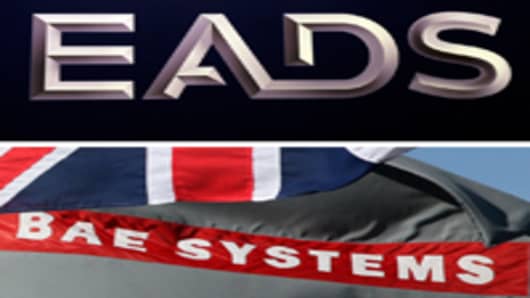BAE Systems will have to agree more rigorous US security arrangements if its 38 billion euros ($49.9 billion) deal to combine with EADS is to pass muster in Washington, a former senior US official has warned.
The British defense group would have to strengthen the “firewall” on its US activities to ensure sensitive technology and information did not leak outside the US, said Mario Mancuso, an undersecretary of commerce in the George W. Bush administration who also served in the Pentagon and is a former senior adviser on the Committee on Foreign Investment in the US, which decides on national security clearance for such deals.
“The introduction of French and German involvementgenerally speaking will mean that the US government will require enhanced mitigation measures,” he said.
The new company would have to grant operational control of its most sensitive US defense contracts to a proxy board of three Americans, divorcing its operations from its European headquarters, less trusted by Washington, several legal experts said.
“With a proxy, your economic interests are handed over to three people and the parent company has limited veto rights over corporate decisions,” said Ivan Schlager, an attorney with Skadden Arps in Washington. “The proxy is not bound to accept recommendations from the parent.”
But Mr. Schlager added that having “the right proxies” could ensure that the company’s interests were adequately considered.
At the heart of the issue is the French and German government’s influence within EADS . The two governments each have effective control over 22.5 percent of the company, with the French government directly owning 15 percent. The two governments have the power to influence the company’s strategy and senior appointments.
Tom Enders, EADS chief executive, is adamant the deal with BAE will end the right of Paris and Berlin to interfere.
But under the plan the capitals will retain diminished stakes in the combined company. People close to the deal said their share would fall to about 9 percent each. This is likely to make the deal harder to get through Washington, but not impossible, legal experts say.
Sir Malcolm Rifkind, a former UK foreign secretary who chairs the parliamentary intelligence and security committee, warned that US anxiety could be a “deal-stopper” if diplomats were not adequately reassured. “If it becomes obvious that a price paid through a deal with EADS would be a lack of access to the American market, then that would be a big argument against the deal,” he said.
Also unhelpful is the fact that France has in the past five years made it more difficult for foreign companies to invest in its own sensitive sectors, Mr. Mancuso said.
BAE already operates under a tough security arrangement known as an SSA, but enhanced mitigation measures are likely to mean the headquarters of a new company would know less about, and have less influence over, what its US arm does.
Both companies are working behind the scenes to achieve a balanced board and decide on senior management. Mr. Enders, a German, and BAE’s British chairman Dick Olver are a likely leadership combination to run the combined board, people close to the situation said.
Board make-up is also key to winning the support of the UK, US, French and German governments.
“It has to have the confidence of the market that the group will function along commercial rather than nationalistic lines,” said one of the people close to talks. “The initial slate of directors will be of symbolic importance.”
At present, the headquarters for the combined group is likely to be Toulouse, which could provide a trade off for not having a French chief executive or chairman, and moreover being where Mr. Enders is based, people familiar with the situation said.


